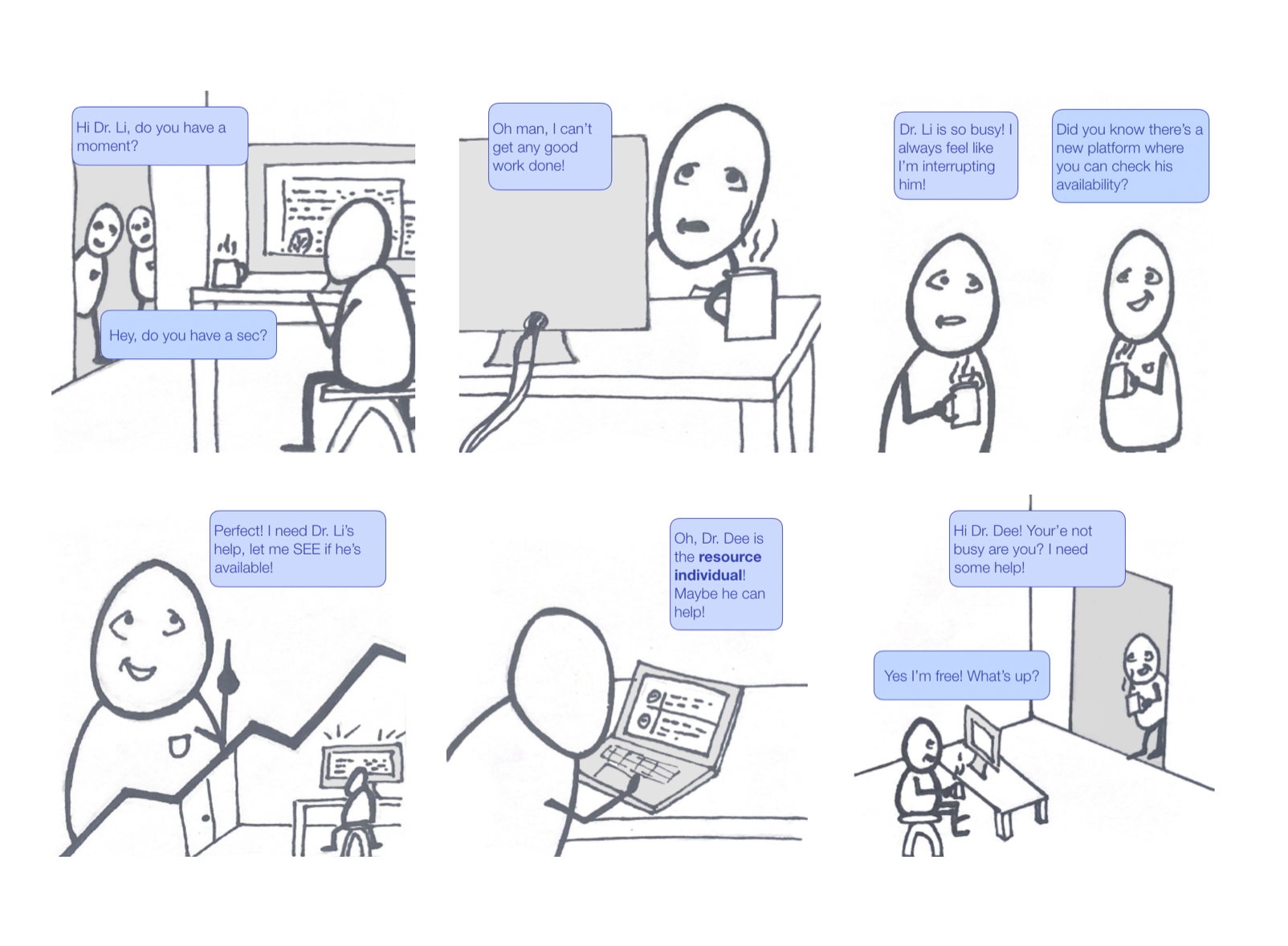Project Athena
Product Design
Overview: A radiologist’s day at the office can be hectic and taxing as they go through their worklist of assigned cases. During my 6-week training with IBM design, my team worked with Watson Health to create a solution that streamlines case prioritization for radiologists to complete their cases in an efficient way.
Role: In a team of seven, I was the Design Researcher on this project. I therefore led the user research and also helped–
Craft stories and slides for presentations
Lead and participate in design thinking activities
Create wireframes for our prototype
Skills/tools: User interviews, Journey mapping, Empathy mapping, Wireframing, Usability testing, Storytelling
Date: July 2019 - August 2019
MEET THE USER
This is Dr. David Li. He’s a radiologist, one who uses medical imaging to diagnose diseases in the human body.
He enjoys caring for his patients, his friendship with other physicians, and working in a quiet, controlled environment while he solves his patient’s cases. However his work environment is far from a calm and focused state.
Let’s delve in a little more to what David’s typical day looks like.
CURRENT EXPERIENCE
From looking at David’s journey, each highlighted pain point in red is represented by the following quotes we heard from radiologists:
“I am overwhelmed by the cases I have to work on.”
“I don’t know enough about this patient to make a judgement.”
It’s important to note that radiologists often consult one another and are called by other physicians to inquire about cases. But it can come to a potentially serious cost of life or death, if they study a complex case that requires their full concentration while someone else needs their attention too:
“I can’t get through the day without 25 interruptions.”
“If you’re reading a complex case, and you get interrupted, it’s difficult to get back to where you were.”
“I may forget to put something I found in the report; that’s the safety issue. It’s not good patient care, and it happens pretty often”
KEY PAIN POINTS
From conducting 9 user interviews to gain deep empathy on a radiologist’s workflow, we overall learned radiologists need…
Study-relevant information: A way to efficiently access relevant information while reading a case, so that they have an immediate background to confidently make an accurate diagnosis
Balanced workload: To maintain a manageable volume of work so they feel satisfied by the time their day ends
Interruption management: A way to manage interruptions while reading a case to efficiently and confidently make diagnoses.
We wanted to find an opportunity to manage workflow disruptions while allowing the physicians to get through their cases with confidence.
PROBLEM STATEMENT
These revealing insights led us to ask:
“How might we get the right study to the best reading physicians at the right time and ensure their workload is balanced across radiologists in the most efficient way possible?”
SOLUTION
To help David and other radiologists like him be able to do their best work and confidently submit their case without potential misdiagnoses, we created a blue-sky solution that acts as a worklist and communication platform for radiologists along with other professionals working closely with them. So with this solution, here’s how we imagine David’s life to look.
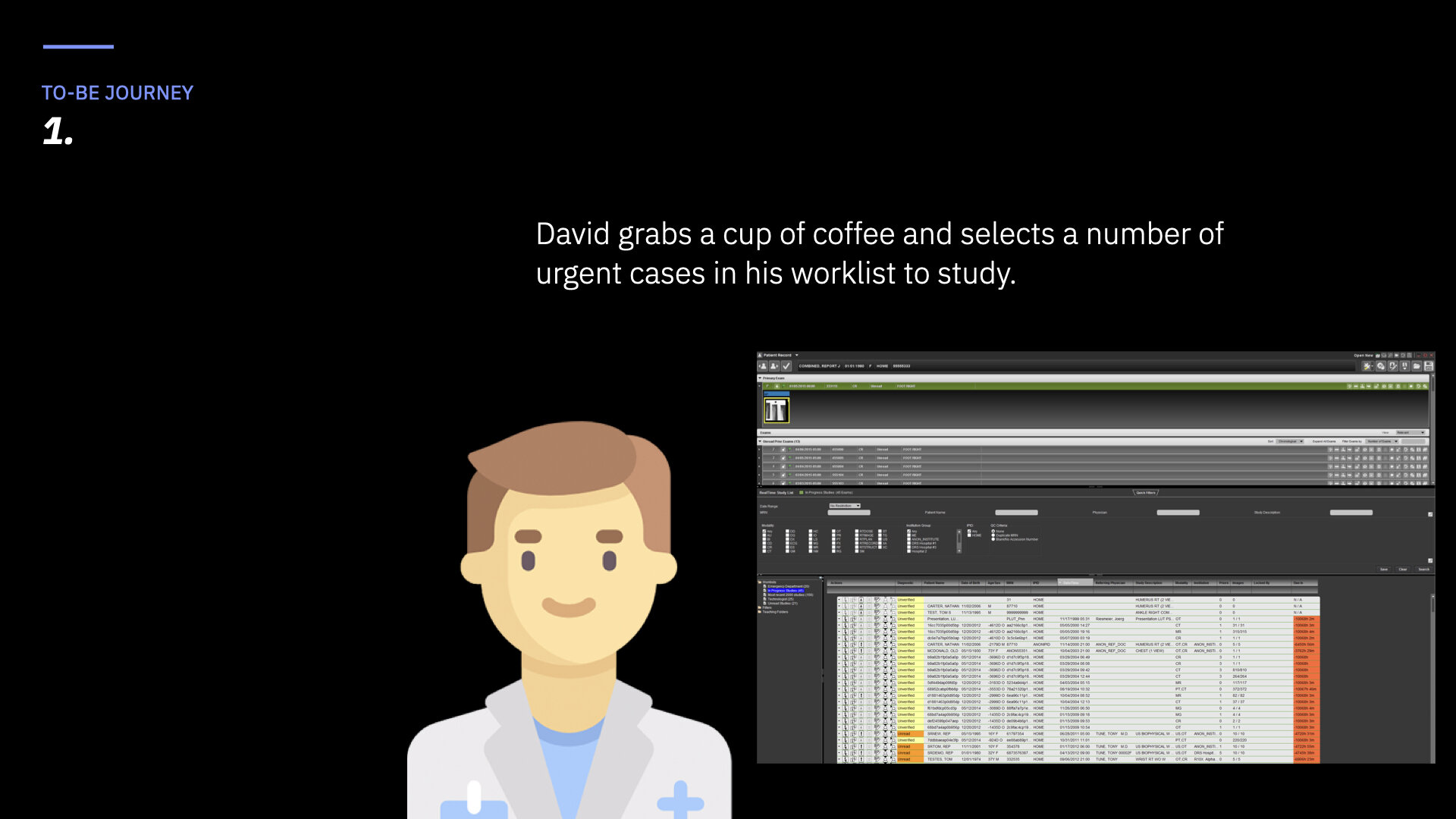
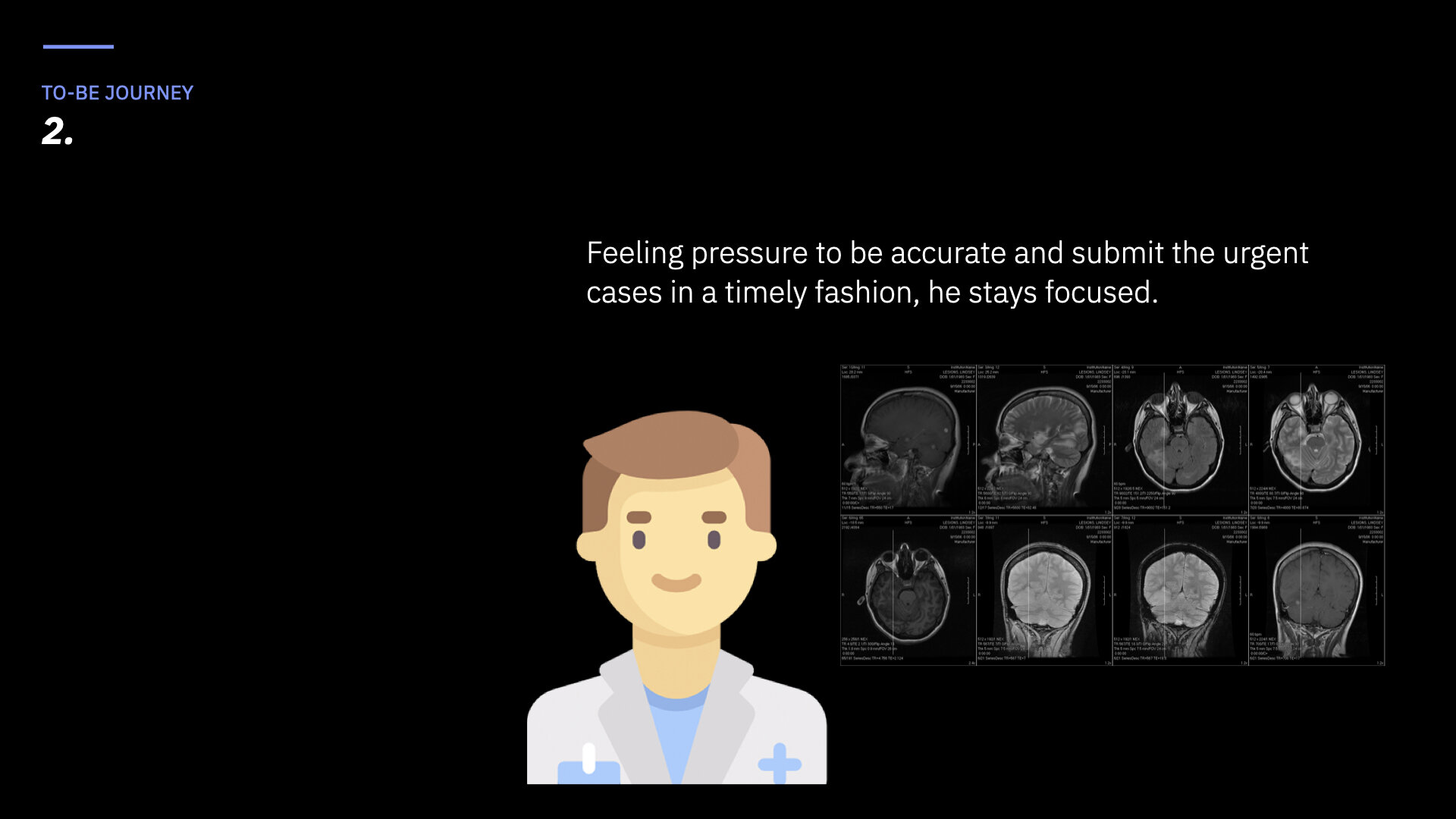
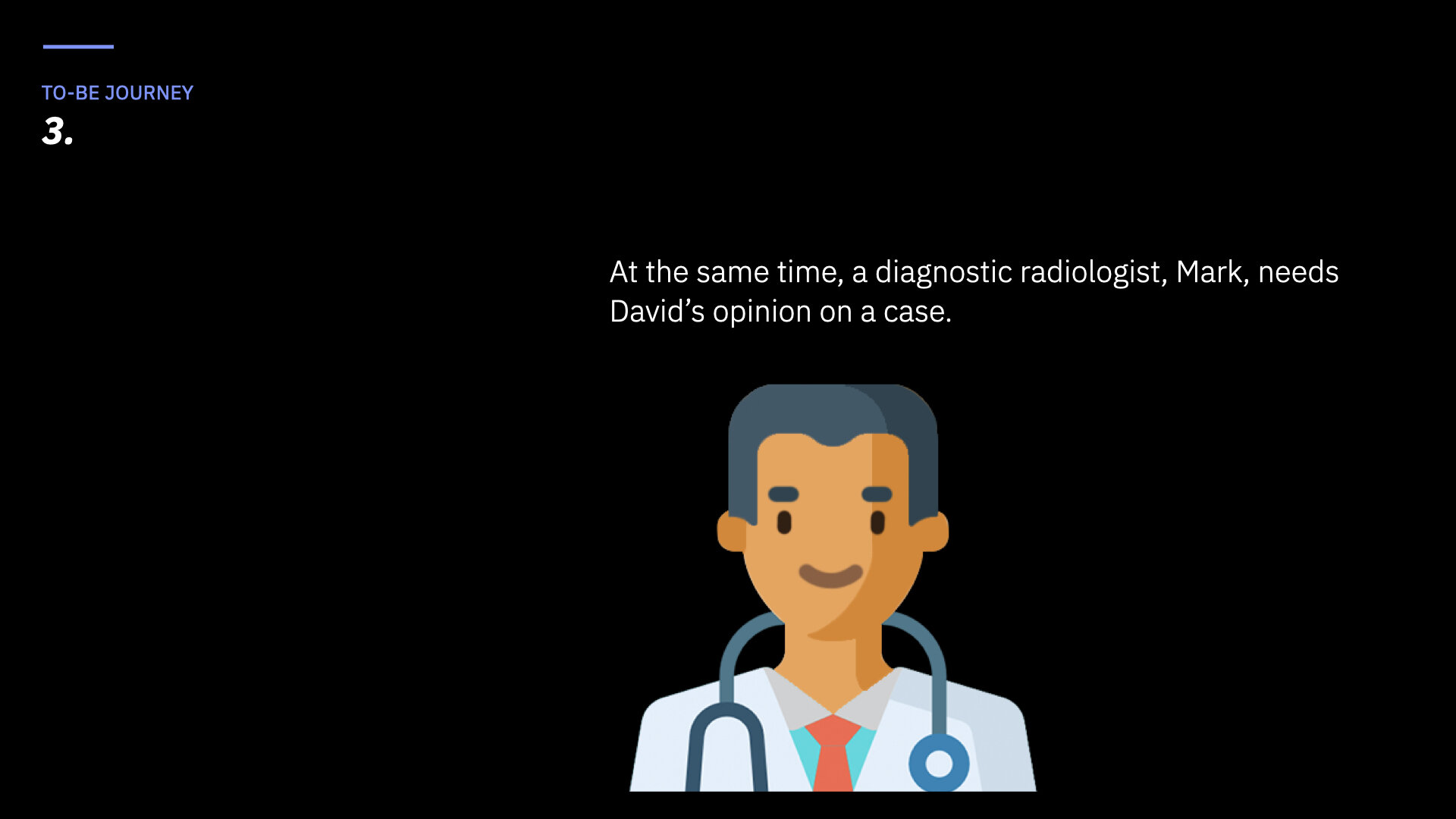
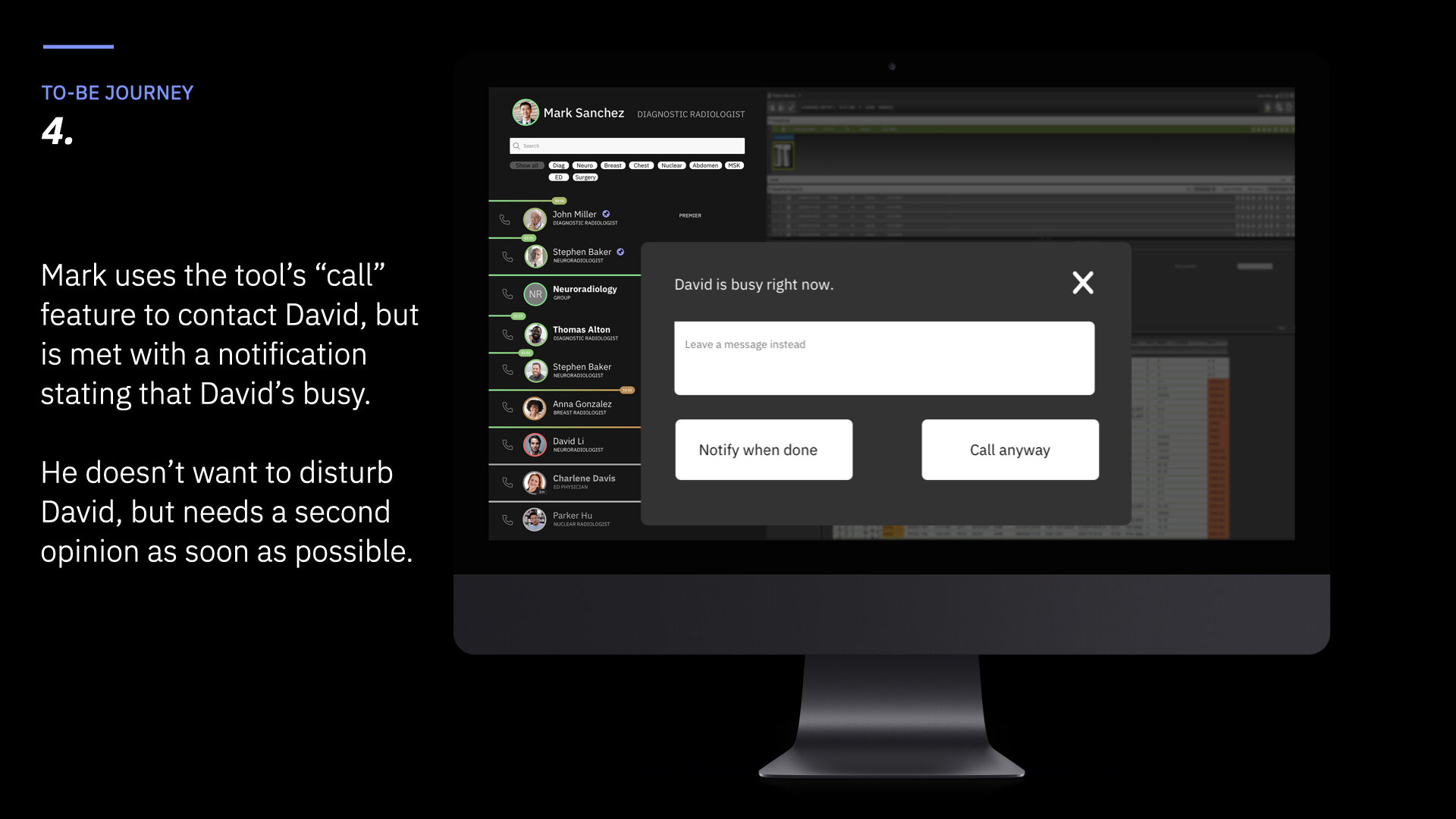
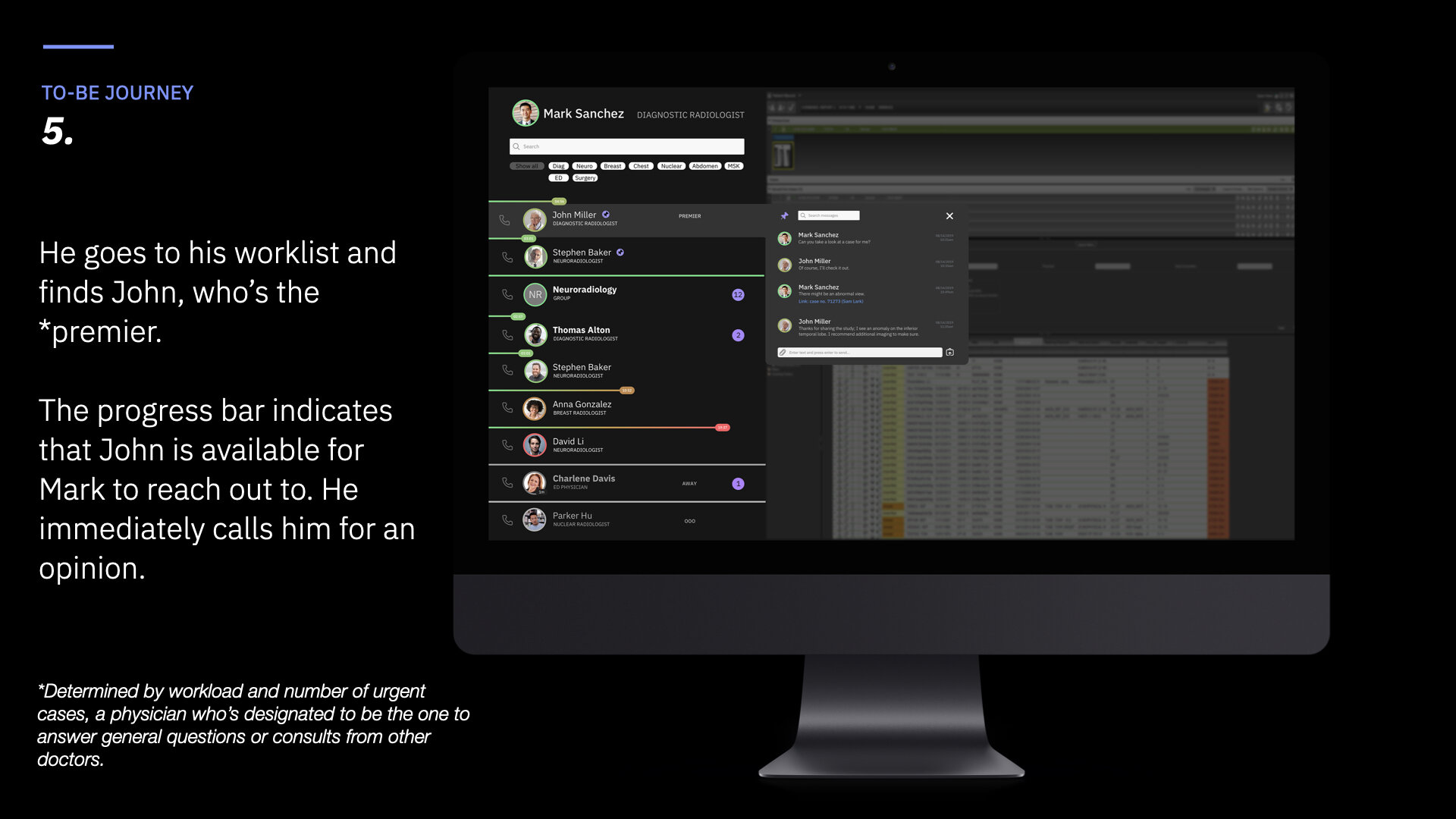
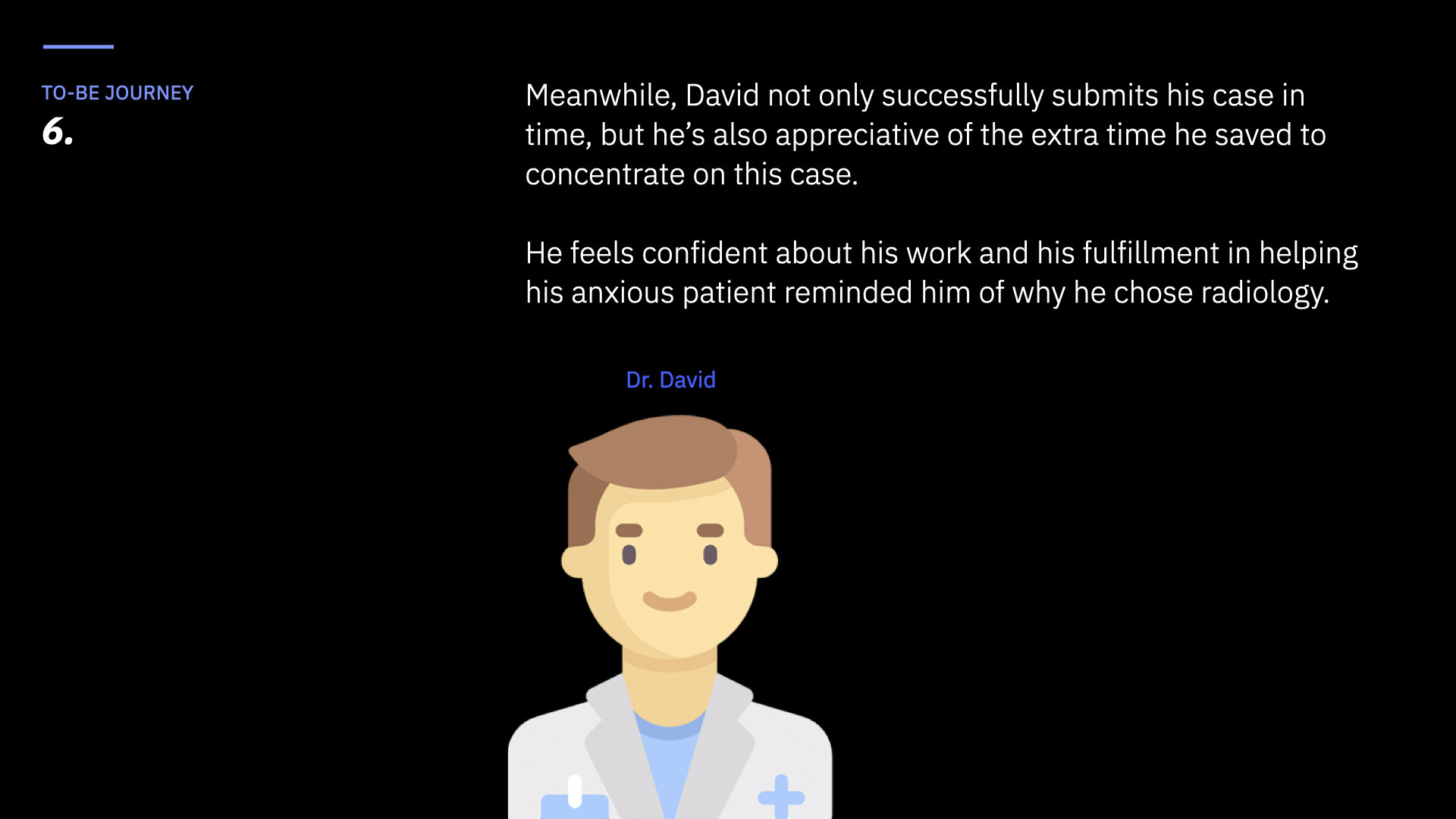
PROJECT ROADMAP
To scope our solution for the given timeline, we set up a roadmap for the features that would eventually be included after the MVP.
PERSONAL TAKEAWAYS
In our final presentation, the director of product management said we chose a multi-million dollar opportunity with our problem space.
A big highlight of this project was the exposure to multiple enterprise design thinking activities I engaged in with my team. It was my first time practicing design thinking for the enterprise space, and taught me a lot about designing a balance between user and business needs. These activities also taught me how to ensure alignment with internal and external project members. It gave me the motivation and experience to continue using these activities in my other IBM projects.
After the mockups were created, we did an initial concept test with a few of our target users and made relevant changes to the prototype. But healthcare is an extremely complex domain to grasp and work within. At times it felt like much more research had to be done beyond just six weeks. Additionally if there was more time, we would have validated the concept with other users involved in the radiologist’s workflow and continue to iterate on these mockups.
However, I’m proud of what we were able to accomplish in a fast-paced environment from generative research, concept ideation, creation, evaluation, to presentation of the MVP. The interdisciplinary collaboration with other design roles and product management within my team, showed me the value of working with diverse perspectives in product development.












